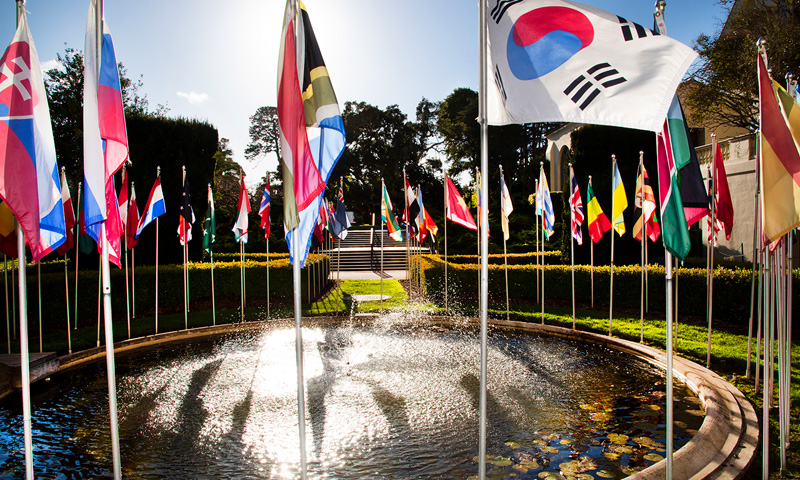A handful of senior Navy enlisted personnel are taking advantage of a new opportunity at the Naval Postgraduate School (NPS) to better prepare for their next deployment while also earning graduate-level credit.
Chief Cryptologic Technicians (Interpretive) (CTIC) Ann Sonnier, Kevin Farr, and Naomi Mori will learn advanced skills in how to develop a professional CTI workforce, tailored to the specific regional areas they will operate in, thanks to a four-course graduate certificate program in Regional Security Studies.
“These Sailors will gain a robust knowledge of theater operations, politics, and foreign policies that influence countries and the decisions they make,” said Cmdr. Paul Rasmussen, NPS Regional Security Studies Program Officer. “This will prepare the CTIs to best fulfill their duties to advise leadership on cultural and regional factors that impact mission operations for areas within the CT occupational standards.”
To prepare them for their next assignments following the program, each student's coursework is customized to provide an understanding of the region he or she will be assigned to. Currently, they are studying the politics, history, and culture of their assigned regions.
“The chance to study at NPS and learn more about the region where I have worked throughout my Navy career got me interested in t he Regional Security Studies Program,” said Sonnier, whose next assignment spans East and Southeast Asia.
The importance of NPS educating Sailors for their next duty assignment stems from the 2020 Education for Seapower Strategy (ESP) and the associated conclusions of the landmark Education for Seapower (E4S) report. Both detailed the importance of the Navy and Marine Corps to strengthen and expand their educational efforts to maintain naval power in an era of great power competition and technological change.
“The enlisted students who are taking part in this program are a direct result of the ESP study and strategy,” said Rasmussen.
Before being selected for the Regional Security Studies program, the CTICs demonstrated a deep pool of prior qualifications ranging from linguist training at the Defense Language Institute Foreign Language Center, regional experience and familiarity during previous commands, and/or prior graduate level education.
“While my graduate degree is in business, Regional Security Studies is quite different from MBA studies,” said Farr, who is studying Latin American regions to prepare for his next assignment in Navy Information Operations Command Texas. “But the knowledge gained at NPS will help me to better understand the history and context of current and future issues.”
The change from the fast-paced work environment of taking care of Sailors and completing operational requirements of their sea or shore commands to the fast-paced learning environment of graduate level studies has been a familiar yet still challenging adjustment for the enrolled Chief Petty Officers.
“As a full-time student, the long days are all about me and my academic requirements,” said Sonnier. “There is a strong dichotomy between taking care of the mission and others and now being focused on more personal requirements.”
Training CTIs to develop ways to use their foreign language skills and advanced computer systems to support information and cyberspace operations for international regions can assist allied nations, but learning more about the other countries can also improve allied relations.
“Our history teaches us that interoperability is very difficult to build during wartime, and thus, we need to place great emphasis on building that interoperability during times of relative peace,” said Rasmussen, citing one of ESP 2020's objectives. “By learning about history, politics, and the culture, the CTIs are better prepared to work with allies.”


